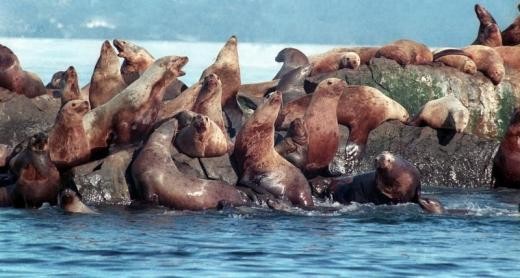SAN JOSE, Ca. - The sea lions have been having a hard time navigating their way to hunt food as the toxin domoic acid, produced by an algae, causes detrimental effects to their brains, experts say.
A team of researchers from the University of California stated that the sea lions suffer from memory loss and poor navigational skills due to the increasing population of algae blooms. A toxin called domoic acid, which the algae pseudo-nitzschia emits, are reportedly killing their brain cells, according to San Jose Mercury News.
From January to June, more than 3,400 cases were recorded. Experts speculate that over 4,000 animals are affected and will belong to the list.
"They have no sense of which way to go," said Peter Cook during the Conference on the Biology of Marine Mammals in San Francisco. He added that approximately one-third of the sea lions suffer from domoic acid intoxication.
The team conducted a study where they observed 30 affected sea lions from Marine Mammal Center in Sausalito. Some reportedly showed signs of infections while others are seen with physical ailments.
The animals were further observed at the UCSC psychological lab, where they discovered that the poisoned animals displayed short-term memory and difficulty to navigate a changed maze. On the other hand, the species with healthy brain cells were able to quickly learn the maze pattern even on last-minute changes.
Northwest Fisheries Science Center's Kathi Lefebvre said sick lions have been documented outside California, particularly in Washington and Oregon.
In an article by the Sacramento Bee, she said the research contributes largely to study the effects of domoic acid not only in marine animals, but in humans as well.
"If we continue to see increasing concentrations in the food web, we're going to need to be more vigilant to protect human health," Lefebvre added.
The study is published in the journal of Science.



























